Managers and legal aid providers reviewed the eight-year implementation of the Legal Aid Law, identifying bottlenecks and proposing breakthrough solutions.
Over 230,000 cases of assistance provided.

According to Deputy Director of the Department of Legal Dissemination, Education and Legal Aid, Vu Thi Huong, the latest updated figures show that there are 53 state-run Legal Aid Centers and 83 branches nationwide, with approximately 1,440 people providing legal aid, including over 710 legal aid assistants, more than 700 lawyers, and hundreds of collaborators. Since the 2017 Legal Aid Law came into effect, the entire system has handled over 234,000 legal aid cases, of which nearly 60% involved litigation, helping hundreds of thousands of poor people, war veterans, women, children, and ethnic minorities protect their legal rights and interests.
Not only in major cities, legal aid services have reached remote and rural areas – places where people have limited access to legal services. In Lai Chau , one of the most disadvantaged provinces in the country, from 2018 to the present, the Provincial Legal Aid Center has handled more than 2,400 cases, of which over 80% involved ethnic minorities.
"There are cases where legal aid workers have to cross mountain passes and trek through forests to reach people. For them, legal aid is not just a job, but a humanitarian mission," shared a representative from the Lai Chau Legal Aid Center.
Many "bottlenecks" remain.

Despite achieving many positive results, the legal aid system still faces numerous challenges. Reflections at the seminar indicated that the first shortcoming is the narrow scope of those eligible for legal aid, failing to encompass groups such as newly-emerged from poverty households, severely disabled individuals, and victims of human trafficking. The limited scope of legal aid does not apply to business and commercial activities, making it difficult for many poor people to access legal advice when they want to start a business or obtain loans to escape poverty.

Human resources are still limited, with over 700 legal aid assistants nationwide – a number insufficient to meet the growing needs of the people. Furthermore, the policies and regulations for legal aid assistants remain inadequate. They possess qualifications equivalent to lawyers and handle complex tasks, yet lack appropriate compensation, rewards, and professional protection mechanisms, discouraging many talented individuals from committing to long-term employment.
More notably, although the Ministry of Justice has integrated some administrative procedures in the field of legal aid onto the National Public Service Portal, aiming to allow citizens to search for information and submit legal aid requests online.
However, feedback from the grassroots level indicates that the implementation of digital legal aid still faces difficulties. In mountainous areas, particularly in Lam Dong province, where ethnic minorities live, many people lack access to the internet. Many believe that for online legal aid to truly reach the people, clear regulations are needed regarding the process and legal value of electronic documents, a verification mechanism via VNeID, and especially coordination between legal aid centers and detention facilities, courts, and police in receiving requests remotely.
In response to the aforementioned shortcomings, Deputy Director of the Department of Legal Dissemination, Education and Legal Aid Vu Thi Huong stated that the Ministry of Justice is proposing amendments and additions to the 2017 Legal Aid Law, which is expected to be submitted to the 16th National Assembly for consideration in April 2026.
Major directions include: Expanding the scope of legal aid beneficiaries, including severely disabled people, newly lifted-out-of-poverty households, victims of human trafficking, and children who violate the law. Diversifying forms of free legal aid, legalizing mediation activities, legal awareness campaigns, and online legal aid. Improving the quality of personnel and creating mechanisms for legal aid assistants to transition into lawyers when they meet the requirements.
Simultaneously, invest in digital infrastructure, establish a "Digital Legal Aid" platform, electronic records, and full-process online services, ensuring transparency, convenience, and information security.
From the perspective of legal aid experts, many opinions also suggested developing a widespread network of legal aid collaborators, connecting centers, lawyers, and social organizations through digital platforms; strengthening training and professional skills development, communication skills, and international integration; and investing in modern facilities and equipment so that legal aid is not just a "free legal service," but a "fair legal service for everyone."
Source: https://hanoimoi.vn/khong-de-ai-bi-bo-lai-phia-sau-khi-can-tro-giup-phap-ly-719993.html









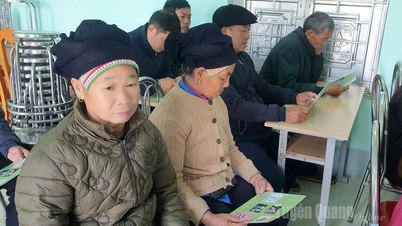

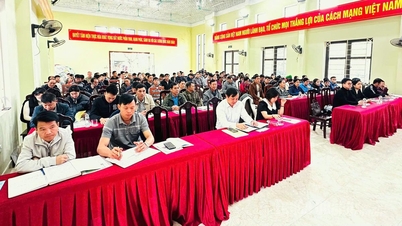
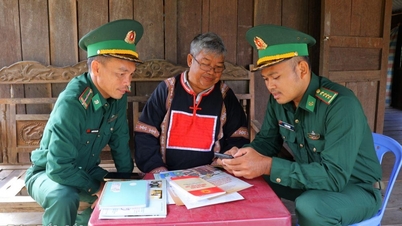















































































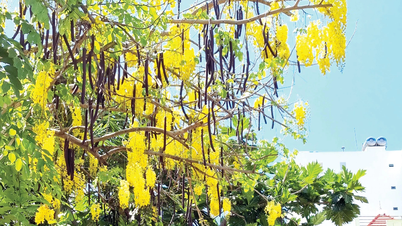


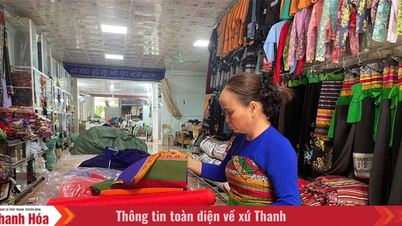
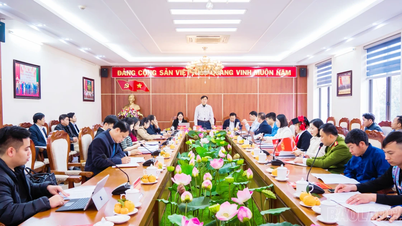













Comment (0)